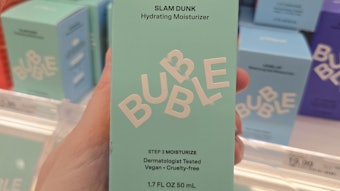
Researchers from AmorePacific Korean Skin Care investigated the biophysical properties of the skin that determine individual skin sensitivity in UV radiation through minimal erythema dose (MED) testing. They found the skin biophysical properties have significant effects on skin sensitivity to UV radiation, which could be used to help predict individual susceptibility to UV damage.
Related: Sunscreen Boosting Ingredients
In the study, published in the Journal of Cosmetic Dermatology (April 2022), Korean women were subjected to MED testing and had their skins' biophysical properties including skin hydration and transepidermal water loss (TEWL) measured to identify barrier disruption.
The researchers found a significant negative correlation between TEWL and MED. With an increase in TEWL, which represents reduced skin barrier function, skin UV sensitivity also increased. Artificial alteration of skin conditions also changed erythemal response to UV radiation. When the skin barrier was disrupted, MED significantly decreased, indicating increased skin UV sensitivity.
Related: Sunscreen Update: Regulations and Tips to Improve Compliance
The skin biophysical properties, including skin barrier function, were found to have a significant effect on skin sensitivity to UV radiation. These findings could help predict individual susceptibility to UV damage. It is hypothesized that the altered penetration of UV radiation into the stratum corneum under the respective skin conditions caused different erythema reactions.









